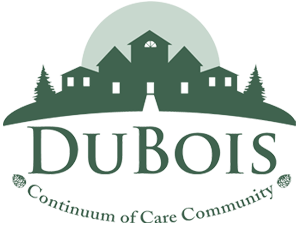Reduce Stress for a Healthier Heart
Whether it's from everyday deadlines, financial struggles, or the COVID-19 pandemic, stress shows up often in life. And your body reacts to it: your heart rate increases, your blood vessels narrow—and over time, these little blows can add up and do damage to your health, particularly your heart. With chronic stress, you're more likely to have high blood pressure, heart disease, diabetes, obesity, and poor sleep. Even other parts of your body — from your lungs to your gut - can take a hit.
But while you can't always limit the amount of stress in your life, you can work on changing how you respond to it. Just like the automatic "fight or flight" response that kicks in when you're scared - your muscles tense, heart rate increases and the brain becomes more alert — your body also has a built-in, healthy relaxation response. When that's triggered, the opposite happens: your breathing and heart rate slow down, and your blood pressure decreases.
Luckily, with practice, you can learn to trigger that response. Try these techniques on your own or find a teacher or class to help you get started. Don't get discouraged if you don't get the hang of it quickly. And if one approach doesn't work for you, try something new. You can learn to de-stress in lots of other ways.
Meditation. One of the most studied approaches for managing stress involves developing your ability to stay focused on the present, instead of worrying about the past or future. Find a quiet location with as few distractions as possible. Get comfortable by either sitting, lying, or walking. Focus your attention on a specific word or set of words, an object, or your breathing. And let distractions, including thoughts, come and go without judgment.
Progressive muscle relaxation. To feel the effect, first, tense your muscles for a few seconds, then relax them. Start by tensing and relaxing your toes, then your calves, and on up to your face. Do one muscle group at a time.
Deep breathing. Take in a slow, deep breath, let your stomach or chest expand, and then exhale slowly. Repeat a few times. Many people don't breathe deeply, but it is relaxing and something you can do anytime, anywhere.
Guided imagery. This involves a series of steps that include relaxing and visualizing the details of a calm, peaceful setting, such as a garden.
Getting your mind and body to a place of calm doesn't always mean being still, however. Other healthy ways to manage stress include taking a yoga or tai chi class, talking to a professional counselor, joining a stress management program or an art class, or meeting up with friends for a brisk walk. Being in nature can be very soothing for some people.
#
Source: National Heart, Lung, and Blood Institute
Combining de-stressors like these with other healthy habits can go a long way toward strengthening your heart. Eat more veggies, fruits, and whole grains, and less sodium, sugar, and saturated fats, for example. Move your body more — like through dancing and walking meetings. Find exercises you actually love and do them regularly. Get enough good, quality sleep. And develop a strong social support system. Then rethink some of the familiar ways you may be coping with stress, such as drinking alcohol frequently, using drugs and other substances, smoking, or overeating. They can actually worsen your stress — and your health.
Taking care of your heart health is a lifelong journey, but at a time when the risk of severe illness from COVID-19 remains higher in people with poor cardiovascular health, learning new ways to make your heart strong has become even more important.
You can learn more about heart health from the National Heart, Lung, and Blood Institute by visiting www.nhlbi.nih.gov. If you need help finding additional resources to help you cope with stress, talk to a healthcare provider. Seek urgent care if you can't cope at all or have suicidal thoughts. Resources are also available at nimh.nih.gov/health/find-help.
#
Source: National Heart, Lung, and Blood Institute
When you subscribe to the blog, we will send you an e-mail when there are new updates on the site so you wouldn't miss them.

